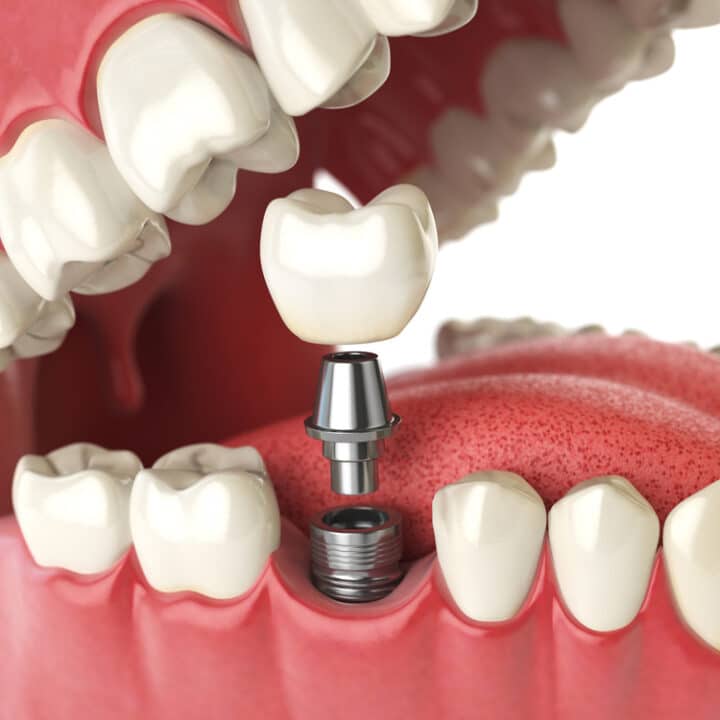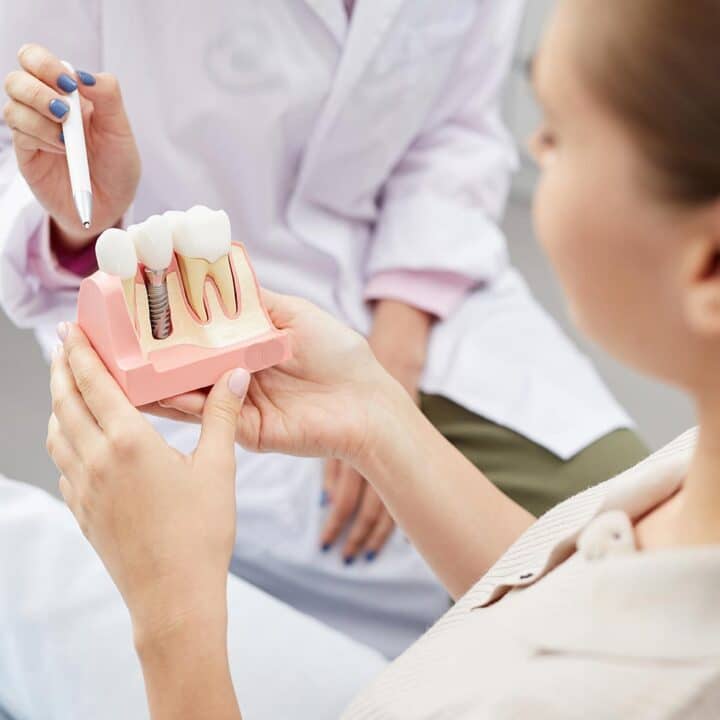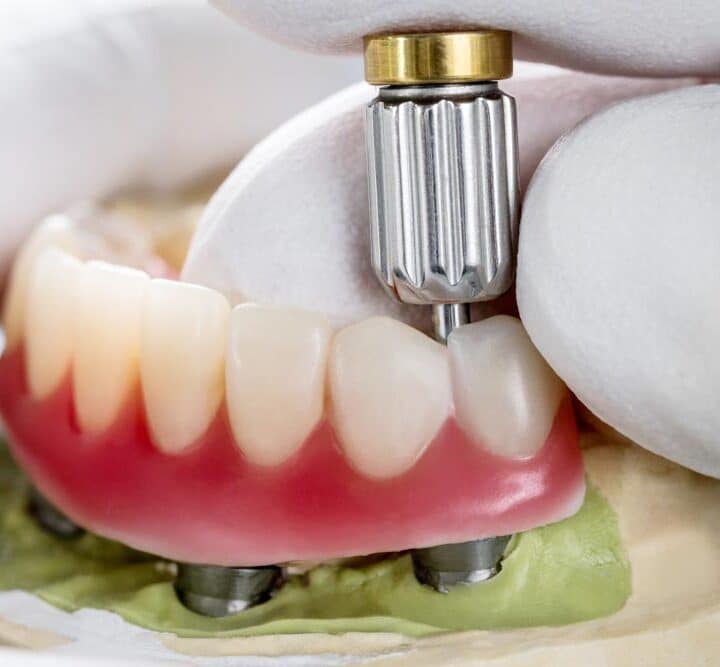Dental Implants Banora Point
What are dental implants?
A dental implant is an artificial tooth root made out of titanium, a biocompatible material surgically placed into the jaw bone. Dental Implants offer a secure solution to replace one or more teeth, providing a solid foundation for holding a crown, bridge, or denture.
They look, feel and function like natural teeth. They are recommended to improve aesthetics, function (chewing) and speech. And they’re also easy to keep clean — just like your other teeth.
They are also effective in minimising bone loss, preventing your remaining natural teeth from moving and shifting, as well as preserving the structure of adjacent teeth.
Dental implants techniques are proven, and results are predictable with a very high success rate.
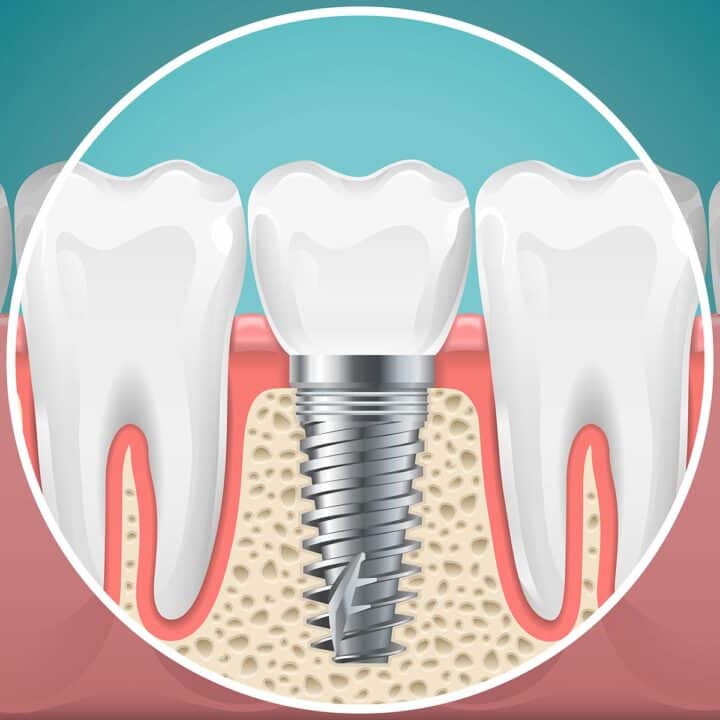
Can I have a dental implant?
Dental implants are great options for patients who:
- Have lost a single tooth, a few teeth or all of them;
- Have missing teeth and don’t want a bridge or removable dentures to replace them;
- Don’t feel comfortable wearing partial or full dentures and would like to consider fixed options to replace the missing teeth.
Most patients are healthy enough to undergo the procedures needed to replace a missing tooth with a dental implant. However, some medical conditions may prevent the placement of an implant.
A good candidate for dental implants must present excellent oral condition (including healthy gum tissues), high standard oral hygiene (brushing and flossing daily), and visit the dentist regularly. Healthy and adequate jawbones are mandatory to support the dental implant.
Smoking, alcohol intake, drug abuse, poor oral hygiene, and improper dietary practices can seriously impede the healing and integration of dental implants and shorten their lifecycle.
At Banora Family Dental & Implants, we will assess which solutions might best suit you and discuss the available options before making the final decision.
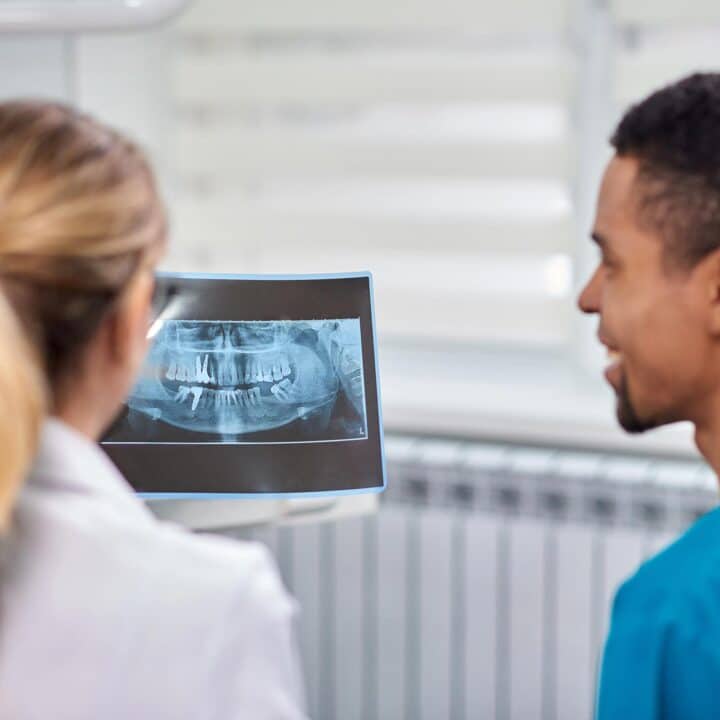
Advantages of Dental Implants

Dental Implants vs Other Tooth Replacement Options
When considering options for replacing missing teeth, it’s useful to compare dental implants with other solutions like dentures and bridges. Dental implants are often chosen for their stability and potential long-term benefits. Unlike dentures, which are removable and may shift within the mouth, implants are anchored into the jawbone, providing a fixed solution that resembles a natural tooth. Bridges, also fixed, typically require alterations to adjacent healthy teeth to support the replacement tooth. In contrast, dental implants do not affect surrounding teeth, allowing for the preservation of natural dental structure.
